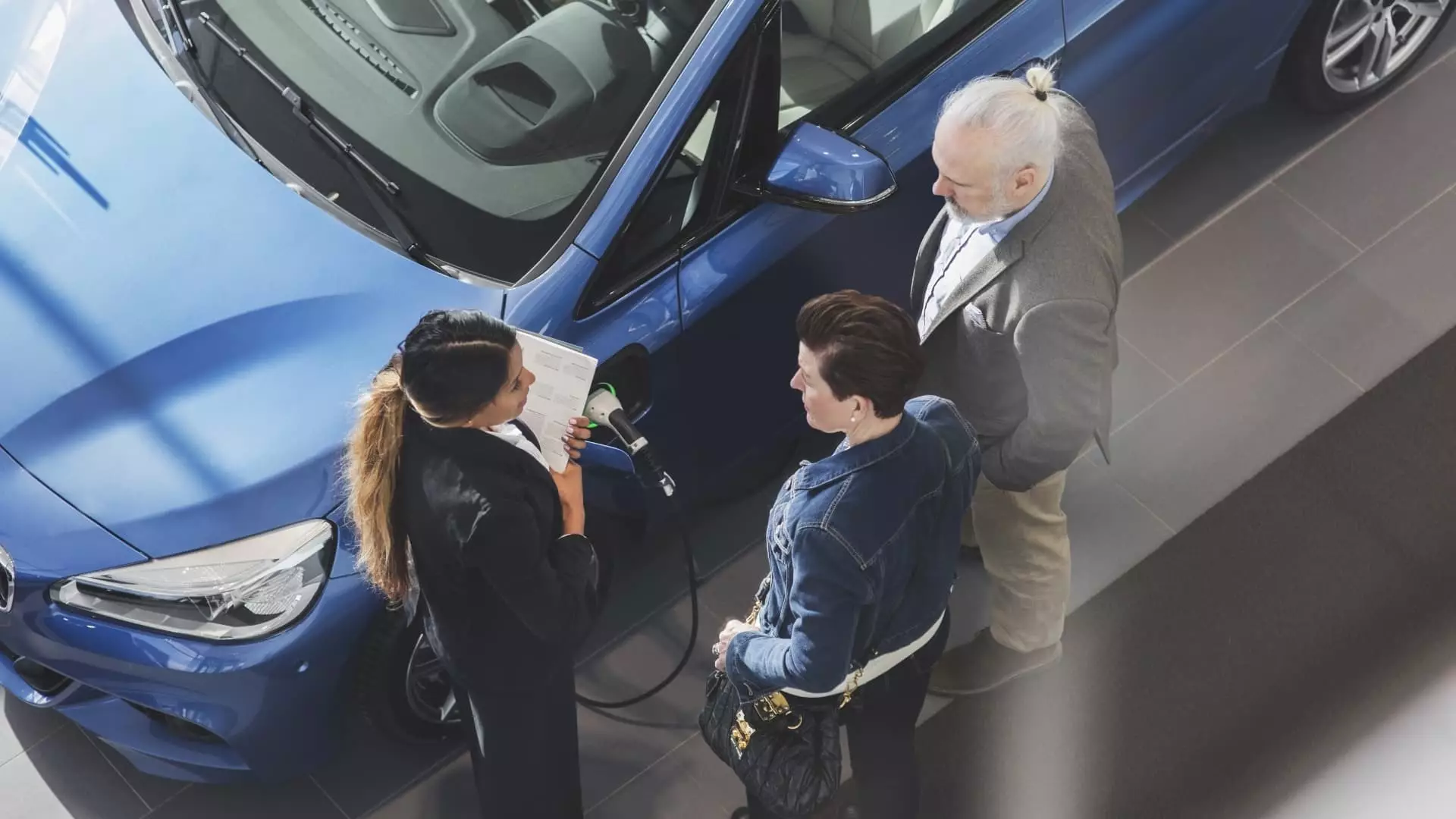A recent study conducted by the Treasury Department has revealed that a whopping 90% of individuals who qualify for the new clean vehicle tax credit prefer to receive the tax break in the form of an upfront advance payment from the car dealer. This data highlights a new trend where consumers are opting for immediate financial relief rather than waiting until tax season to claim their tax credits. Ingrid Malmgren, the policy director at Plug In America, emphasized the popularity of this new mechanism.
In an effort to promote the adoption of electric vehicles, President Joe Biden signed the Inflation Reduction Act, which introduced advance payments as a financial tool for EV buyers. This mechanism allows dealers to offer qualifying buyers an upfront discount, which can be delivered as a partial EV payment, down payment, or cash payment. The IRS then reimburses the dealer accordingly. This provision came into effect on January 1st, ushering in a new era of convenience for consumers purchasing electric vehicles.
Benefits of Advance Payments
Advance payments offer numerous benefits to consumers, particularly in terms of affordability. By receiving an upfront cash discount, households may not need to seek additional funds to cover down payments, resulting in lower monthly car payments and reduced interest charges. This financial mechanism aims to make electric vehicles more accessible to a wider range of consumers, thereby accelerating the transition to cleaner transportation options.
Despite the growing popularity of advance payments, there are some challenges associated with this new mechanism. Not all car dealers are participating in the program, limiting the availability of this option to consumers. Additionally, the Inflation Reduction Act imposes certain manufacturing requirements on new EVs, which may restrict the number of models eligible for the full tax credit. Buyers and dealers alike must adhere to these requirements to qualify for advance payments and avoid potential repayment obligations to the IRS.
As of now, over 100,000 time-of-sale reports have been filed for new and used EVs, indicating consumer eligibility for tax breaks. The Treasury Department has issued over $580 million in advance payments since the implementation of this provision on January 1st. While demand remains high, efforts are being made to expand the reach of advance payments to more consumers and car dealers across the country.
Looking Towards the Future
With over 36 new EV models currently eligible for tax breaks in 2024, it is clear that the electric vehicle market is growing rapidly. Manufacturers such as Acura, Audi, Cadillac, and Tesla are leading the way in producing models that qualify for tax credits. As technology advances and more consumers embrace cleaner transportation options, advance payments are expected to play a vital role in incentivizing the adoption of electric vehicles nationwide.
The shift towards advance payments for electric vehicle tax credits represents a significant milestone in promoting sustainable transportation solutions. By offering immediate financial incentives to consumers, this new mechanism has the potential to drive widespread adoption of electric vehicles and reduce carbon emissions in the years to come.

Leave a Reply